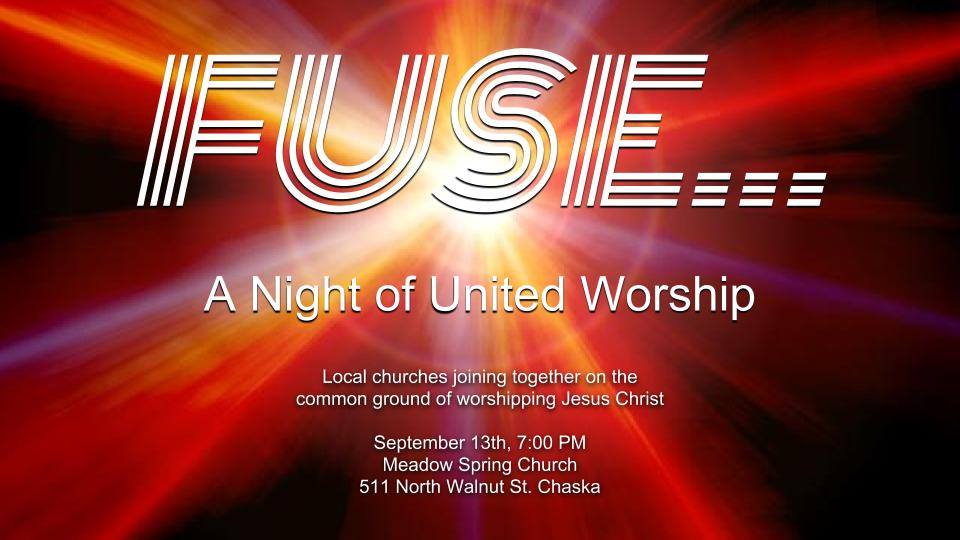Chris tmas is coming up really fast, and I realize, as I have gotten older that it can come with a lot of stress. There are travel plans that need to be arranged, gifts to be bought, baking to be done, and a whole list of stuff to do. It can become easy to get so caught up in the things that need to be done that we don’t really have time to celebrate the Birth of Christ on Christmas.
tmas is coming up really fast, and I realize, as I have gotten older that it can come with a lot of stress. There are travel plans that need to be arranged, gifts to be bought, baking to be done, and a whole list of stuff to do. It can become easy to get so caught up in the things that need to be done that we don’t really have time to celebrate the Birth of Christ on Christmas.
But it wasn’t always like that. I have memories of just being caught up in the wonder of Christmas as a kid. One of my favorite memories was driving around and looking at all the Christmas lights, and to this day when I drive by a house that it covered in lights I get caught up in the nostalgia. I feel excited for Christmas.
I talked to Pastor Rob about this earlier in the week and he told me that when he was a kid, he would wait up all night and at 4:00 in the morning he would try to wake his parents up, and they would send him back to bed until a more reasonable time. If you know Rob you know he is pretty determined about the things he cares about and he was as a child too.
So when he was sent back to his room he would throw stuffed animals at his younger brother until he woke up. I asked Rob why he would do this, if he was just angry and taking out on his brother, but he said, he thought if him and his brother were both up it would give him more leverage with his parents and he would get his gifts sooner.
Today we are going to be back in Luke 1 and we are going continue looking at the events leading up to Jesus’ birth. We will be taking a look at Mary’s Song from Luke chapter 1 verses 46-56.
Luke 1:46-56 says.
And Mary said:
“My soul magnifies the Lord,
And my spirit has rejoiced in God my Savior.
For He has regarded the lowly state of His maidservant;
For behold, henceforth all generations will call me blessed.
For He who is mighty has done great things for me,
And holy is His name.
And His mercy is on those who fear Him
From generation to generation.
He has shown strength with His arm;
He has scattered the proud in the imagination of their hearts.
He has put down the mighty from their thrones,
And exalted the lowly.
He has filled the hungry with good things,
And the rich He has sent away empty.
He has helped His servant Israel,
In remembrance of His mercy,
As He spoke to our fathers,
To Abraham and to his seed forever.”
And Mary remained with her about three months, and returned to her house.
So lets put this song into the context of what is going on. Mary has been visited by Gabriel and told that by the Power and Will of the Holy Spirit she is going to conceive Jesus as a virgin, and Jesus is going to be great, the Son of God, and will rule over a kingdom that will never end. Once Mary conceives she goes to be with her relative Elizabeth. The baby inside Elizabeth, John the Baptist, was filled with the Holy Spirit and leaped for joy. After this Elizabeth said this to Mary…
“Blessed are you among women, and blessed is the fruit of your womb! But why is this granted to me, that the mother of my Lord should come to me? For indeed, as soon as the voice of your greeting sounded in my ears, the babe leaped in my womb for joy. Blessed is she who believed, for there will be a fulfillment of those things which were told her from the Lord.”
After hearing this amazing thing from Elizabeth Mary responded with the song we just read.
I love poetic passages from the Bible and we don’t have very many in the New Testament, but they also come with the challenges. I firmly believe that every portion of Scripture tells us something about God and tells us something about our relationship with Him. With poetic passages we have to work harder to discover what they say about God and about our relationship with Him. Partly this is because western cultures don’t typically teach using poetry, we like bullet points and graphs. It may take more effort to study a poetic passage but its worth it because there is a lot of truth about God and our relationship with Him.
So we are going to go through Mary’s Song and similar to how we did last week I want us to be thinking about one thing during our discussion.
What does this tell us about our relationship with God?
So beginning in verse 46
And Mary said:
“My soul magnifies the Lord,
And my spirit has rejoiced in God my Savior.
For He has regarded the lowly state of His maidservant;
For behold, henceforth all generations will call me blessed.
For He who is mighty has done great things for me,
And holy is His name.
In the first part of Mary’s Song She begins by saying “My soul magnifies the Lord and my spirit has rejoiced in God my Savior” The original word translated as magnifies means “too make or declare great”. Just like how a magnifying glass makes things bigger and more noticeable. Mary is saying that her soul makes God bigger puts Him on display and declares His greatness.
Mary say she is rejoicing in God and Magnifying Him because despite here lowly estate, He who is mighty has done great things for her. When God looked at Mary He didn’t see a lower class young girl from no name city Nazareth. When God looked at her He saw someone who He loved and who loved Him and wanted to live a life devoted to Him. He gave her the privilege of being part of His plan to redeem the world. She got to carry the Savior of the world in her belly for 9 months and watch Him grow. As far as we know she spent more time with Jesus then anyone. That is why Mary is magnifying the Lord and rejoicing in Him.
What I find most amazing about this first part is that Mary didn’t ask for anything. How often do we spend most of our prayers presenting God with our list of requests? We tell our loved ones how much they mean to us and how amazing they are but, how often do we take the time to just glorify God for who He is and what He has done?
But God didn’t just do this for Mary, she continues in the next verses.
Luke 1:50-53 says,
And His mercy is on those who fear Him
From generation to generation,
He has shown strength with His arm;
He has scattered the proud in the imagination of their hearts.
He has put down the mighty from their thrones,
And exalted the lowly.
He has filled the hungry with good things,
And the rich He has sent away empty.
Mary starts out this portion by making a claim about what God does. “His mercy is on those who fear Him from generation to generation” She claims that throughout history God has had mercy on those who fear Him. She is saying that God cares for, protects, and chooses to use the people who love and respect Him. Much like how He did for Mary.
Then she goes on to offer examples or proof of how God does this. She says He has…
Scattered the proud, put down the mighty from their thrones, exalted the lowly, filled the hungry, and sent the rich away empty.
Is this saying that its bad to be wealthy or in power? Is it saying that God is targeting those who have had a lot of success? No! It’s saying that God has mercy on those who fear Him. It doesn’t matter your economic or social status God is in control. He can use and bless whomever He wants despite their current situation. But what about Mary? It talks about the lowly being exalted and the hungry being filled. There is no evidence that by the end of Mary’s life she jumped some social barrier or came into a bunch of money.
This passage does not support some health wealth and prosperity theory that claims that God is going to give us money and power because we love Him. What it is saying that your current position in life does not restrict God. He chooses to use those who love and respect Him. He offers them much more then material or earthly blessings.
God is not our magic genie that pours out riches on us because we follow Him. But when we can live a life in relationship with God, take a part in His work, and live as members of His household and citizens of His kingdom, we can stand before Him on the day of judgment and He will look at us with love and forgiveness and say “well done good and faithful servant”. In that moment when we are standing in the presence of God surrounded by His love, our economic and social status on earth will mean nothing. It will fade away in the glory of being with God for eternity. Not only did God choose to bless and use Mary despite her lowly position, but He does that for all who fear Him.
Mary magnifies and rejoices in God because…
He did mighty things for and through Mary, and He has mercy on all those who fear Him, but that’s not all.
Mary continues in verse 54. It says…
He has helped His servant Israel,
In remembrance of His mercy,
As He spoke to our fathers,
To Abraham and to his seed forever.”
And Mary remained with her about three months, and returned to her house.
Mary is saying that God has also shown mercy on Israel and remembered the words he said to Abraham.
God told Abraham in Genesis 12:2-3.
“I will make you a great nation;
I will bless you
And make your name great;
And you shall be a blessing.
I will bless those who bless you,
And I will curse him who curses you;
And in you all the families of the earth shall be blessed.”
For thousands of years Abraham’s descendants had been waiting for this promise to be fulfilled. They had seen glimpses of its fulfillment throughout history. But here they were living in the land promised to them controlled and oppressed by a foreign power. It would be easy to lose hope, to think God had forgotten His promises. But the blessing to the world promised to come through Abraham was growing in Mary’s belly. Jesus Christ was in the world to fulfill all the promises they had been given. He would bless not just the Jewish people, but all people throughout all time, because He came to earth to save them from the most despicable curse, from sin. Jesus Christ would grow up to preach about the Kingdom of God and at the cost of His life He would offer freedom to all people. Maybe not how they expected. He wasn’t going to crush Rome and free them from political oppression at that time, but He was going to do something much greater. Jesus Christ has died on the Cross and risen from the dead, destroying the power of sin and death and making it possible for all people to have a personal relationship with the Creator and Sustainer of the universe.
Mary magnifies and rejoices in God because He…
Did great things for and through Mary despite her lowly state. He has mercy on all those who fear Him despite their economic or social position. And He has been faithful to Israel and the world by fulfilling His promise to bless the whole world through Abraham by sending Jesus Christ into the world.
Going back to our question.
What does this tell us about our relationship with God?
It tells us that God is not restrained by our social or economic status. He chooses to use and bless those who love Him despite their position. It also tells us that God is faithful. He will do what He says, and He has blessed the entire world through Jesus Christ. And it tells us that when God is glorified in our lives we will rejoice in Him. Mary said “My soul magnifies the Lord and my spirit has rejoiced in God my savior”
At the beginning we talked about things that make us excited about Christmas. Maybe it’s the lights, or the gifts, or the fact that it’s a chance to celebrate the Birth of Jesus.
Mary is excited and joyful because God has included her in His plan. She is joyful because He who is mighty has done great things through her and because of that, because God used her to bring about His plan God was glorified.
We all have the opportunity to glorify God in our lives. No matter our position in life we can make His name great and put His glory on display. And when we do it shouldn’t be out of obligation, but because when God’s glory is increased our Joy in Him will be increased. The fact that we serve a God who created everything, and who loves us so much that He died on the cross to be with us is cause for joy.
My challenge for us today is to find sometime in this busy season and rejoice in God. Stop and think about the greatness and love of God. And because He is so great continue to Magnify His name. Find in opportunity to dwell in the joy of God and make His greatness known in your life.















